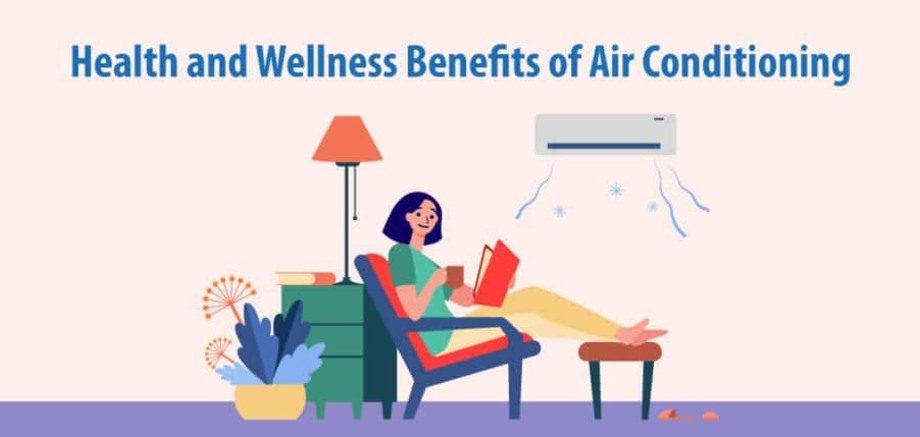Air conditioning is a staple in modern homes and offices. As much as it’s associated with comfort and productivity, air conditioning also plays a significant role in human health. Whether you’re installing a system in a home, upgrading an office unit, or simply trying to understand how your environment affects your well-being, it’s important to look beyond temperature control. Here’s what you need to know about air conditioning and human health, and how to make smart choices that support both comfort and wellness.
How Air Conditioning Impacts Health – The Pros
1. Better Air Quality
Modern air conditioning systems do more than cool the air. High-quality units include filtration systems that remove dust, pollen, and other airborne particles. This is especially important in urban areas and closed indoor environments, where allergens and pollutants can accumulate. For individuals with allergies or asthma, properly maintained air conditioning can significantly reduce symptoms and improve breathing quality.
2. Humidity Control
Excess humidity can lead to mold growth, dust mites, and increased discomfort. Air conditioning helps maintain optimal indoor humidity levels, especially in regions with hot and humid climates. Controlling humidity is key to preventing respiratory issues and creating a healthier indoor environment.
3. Heat-Related Illness Prevention
In high temperatures, the risk of heat exhaustion and heat stroke increases, particularly for vulnerable populations such as the elderly, young children, and people with chronic illnesses. Efficient air conditioning systems in homes and workplaces are essential for preventing overheating and supporting safe body temperature regulation.
The Risks of Poorly Maintained Systems
While air conditioning can offer real health benefits, it can also present risks if systems are outdated, improperly installed, or poorly maintained.
1. Dirty Filters = Dirty Air
Clogged or dirty filters can become a breeding ground for bacteria, mold, and dust. Instead of improving air quality, a poorly maintained system can circulate contaminants and cause respiratory irritation, headaches, and fatigue. Regular filter replacement and system checkups are essential.
2. Dry Air and Dehydration
Overuse of air conditioning—especially in closed office environments—can lead to overly dry air, which may irritate skin, eyes, and sinuses. People who spend long hours in these conditions may also experience mild dehydration if they don’t drink enough fluids. Balancing air conditioning use with proper hydration and occasional ventilation can help.
3. Temperature Extremes and Immune System Stress
Sudden transitions between hot outdoor temperatures and freezing indoor environments can strain the body. This can potentially weaken the immune response or trigger cold-like symptoms. A well-calibrated system that avoids extreme temperature shifts is better for long-term health.
Smart Tips for Home and Office
If you want to get the most out of your system without compromising health, here are a few practical strategies:
Choose a system with HEPA filtration or advanced air purifiers. These are ideal for removing airborne particles and supporting indoor air quality.
Schedule regular maintenance. Schedule a professional inspection and maintenance for your unit twice yearly.
Clean or replace filters monthly. Especially during high-use seasons.
Set a moderate temperature. Aim for 22–25°C (72–77°F) to avoid shocking your body with temperature swings.
Control humidity levels. Consider systems with built-in humidistats or pair your A/C with a dehumidifier if needed.
Use smart thermostats. These can automate temperature control and reduce unnecessary energy use, keeping the environment comfortable without going overboard.
Air Conditioning and Human Health: It’s About Balance
In both home and office settings, air conditioning isn’t just a matter of comfort—it’s part of a larger health equation. When designed and managed well, HVAC systems can enhance air quality, reduce heat-related risks, and create a space where people can work and live more comfortably. But ignoring maintenance or overusing cooling features can undo those benefits.
Investing in a reliable, health-conscious system makes a difference. Look for units with strong filtration capabilities, energy-efficient designs, and climate-smart controls. When in doubt, consult with HVAC professionals service ac jakarta barat, who understand the link between air conditioning and human health—and can guide you toward the best options for your space.
 :
https://www.tokopedia.com/topac
:
https://www.tokopedia.com/topac

